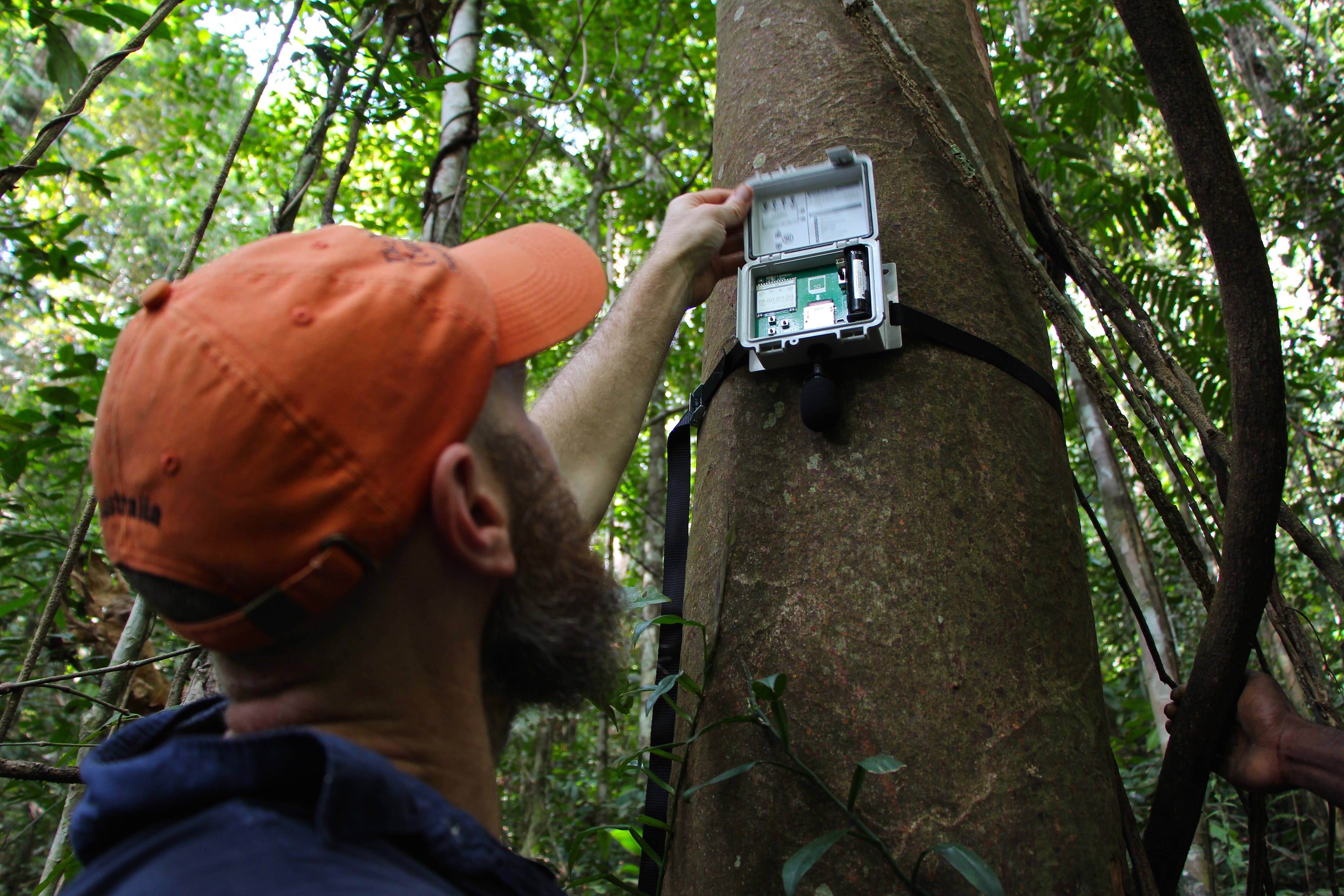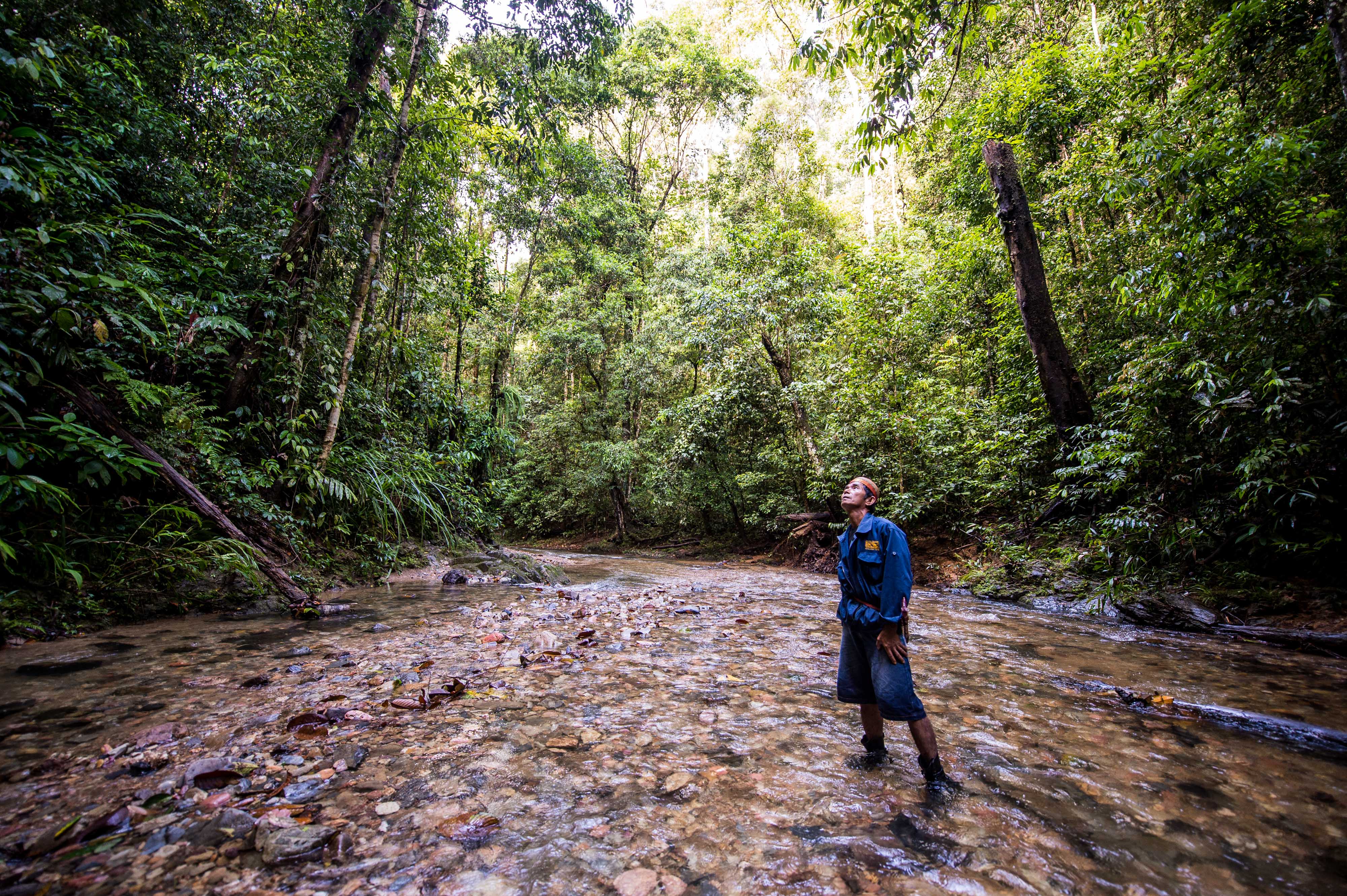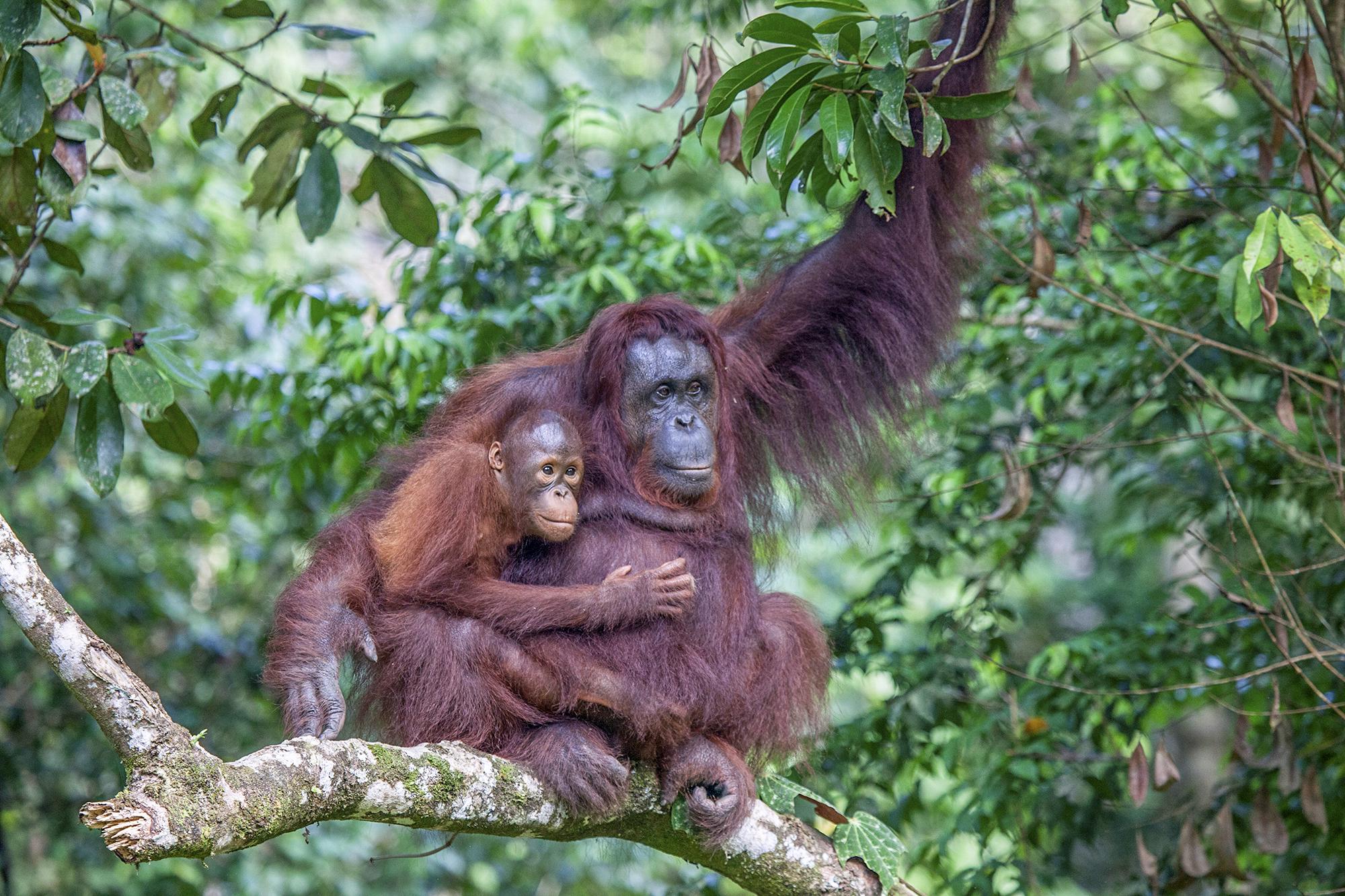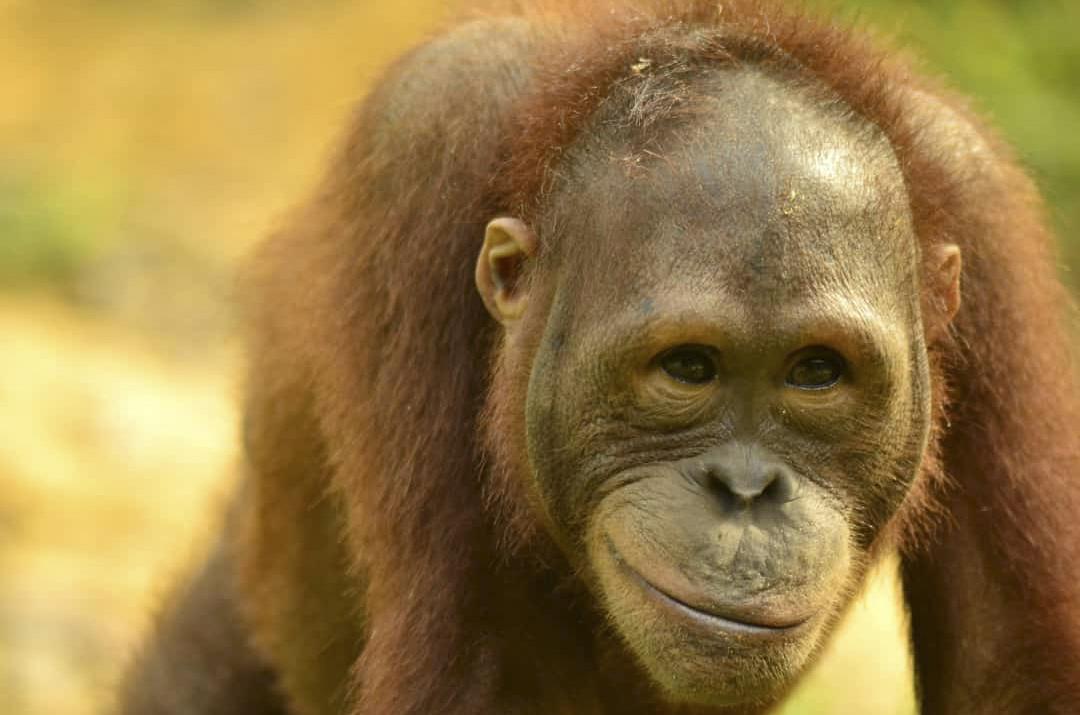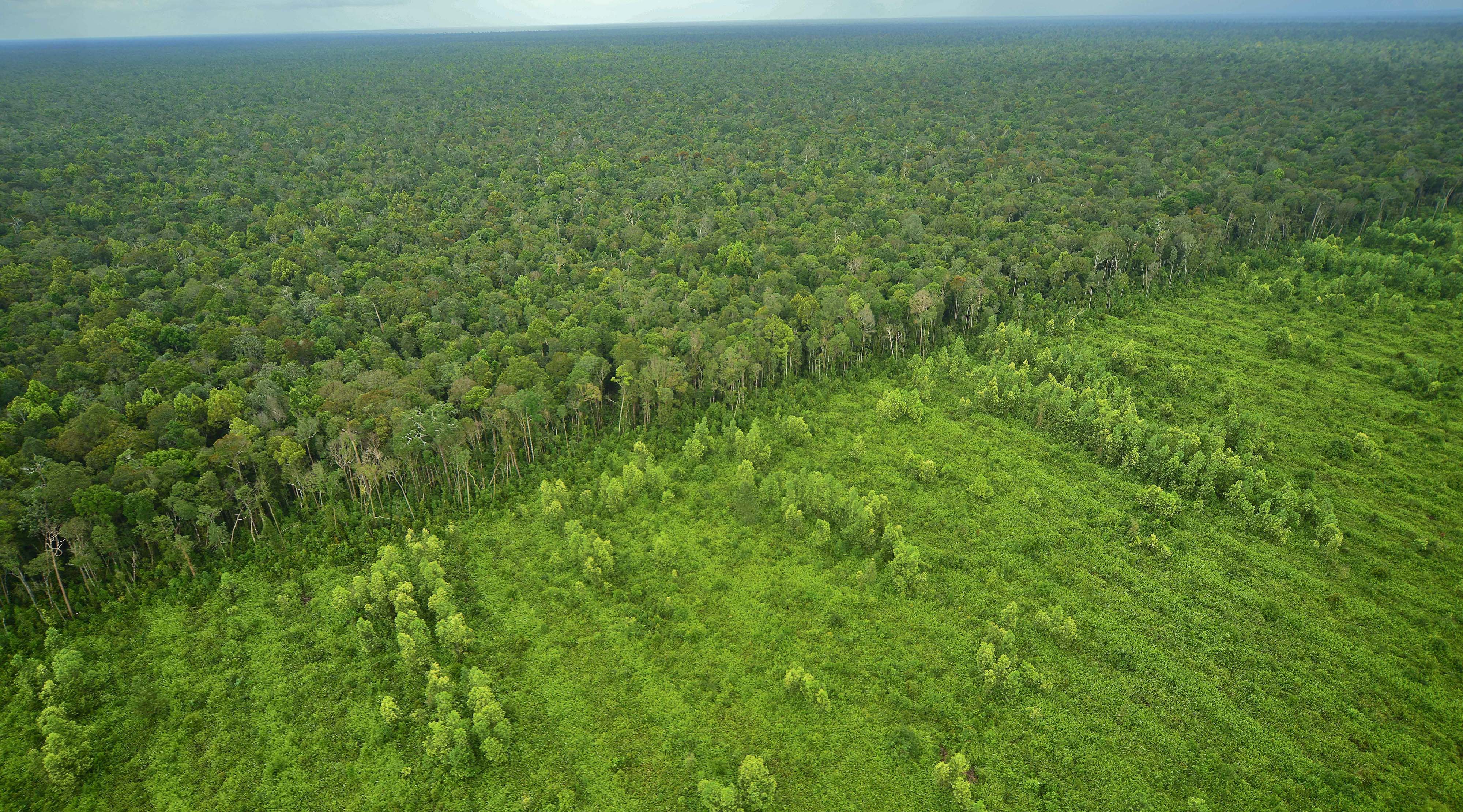Though they cover just 1 percent of Earth’s surface, these forests are bursting with biodiversity: they’re home to 10 percent of the world’s plants, 12 percent of its mammals and a whopping 17 percent of its birds.
They’re home to some of the rarest and most magnificent fauna, too:
- Sumatran rhinos (just about 100 left)
- Critically endangered orangutans
- Clouded leopards
- Gibbons
- Hornbills
- Asian elephants
Forests Are Invaluable
But these forests are also very valuable—to local communities, to the Indonesian economy and to international companies. Wood from these forests is harvested, manufactured and sold around the world to build homes, furniture and much more. Trees are also turned into pulp to make paper we use every day. Native forests are burned to the ground to make room for oil palm plantations that supply the raw oil for soaps, cosmetics, cooking, biofuels and more.
Using Science to Save Forests
Though it might be nice to imagine a world that didn’t cut down another single native tree in Indonesia, it’s also unrealistic. There should be a way to balance the economic development needs of Indonesians, the global economic interest of large companies and the needs of Indonesia’s incredible fauna and flora… And TNC is striving precisely to help achieve that balance. One of the ways we’re working towards it is by bioacoustic monitoring: a way for our scientists to analyze the health of a forest and determine the optimal balance for all.
Besides our bioacoustic monitoring initiative, TNC is tackling deforestation in Indonesia through multiple strategies, to save these amazing forests before it’s too late. We:
- Launched a Green Growth Compact with the government of Indonesia’s East Kalimantan Province to reduce emissions there by 1.000 tons of CO2 per HK$7.8 million GDP while increasing economic growth by 8 percent.
- Engage Indonesian communities in SIGAP—a Bahasa Indonesian acronym meaning Communities Inspiring Actions for Change—to help them secure legal rights to their forests and other natural resources and develop plans to manage them sustainably. We’ve worked with 180 villages so far.
- Work with governments and companies to more sustainably conduct business, by shifting to reduced impact logging and low emission palm oil development, for example.
- Collaborate with partners, communities and governments to improve management on 10 million hectares of forests, including almost a half million hectares of critical orangutan habitat.

